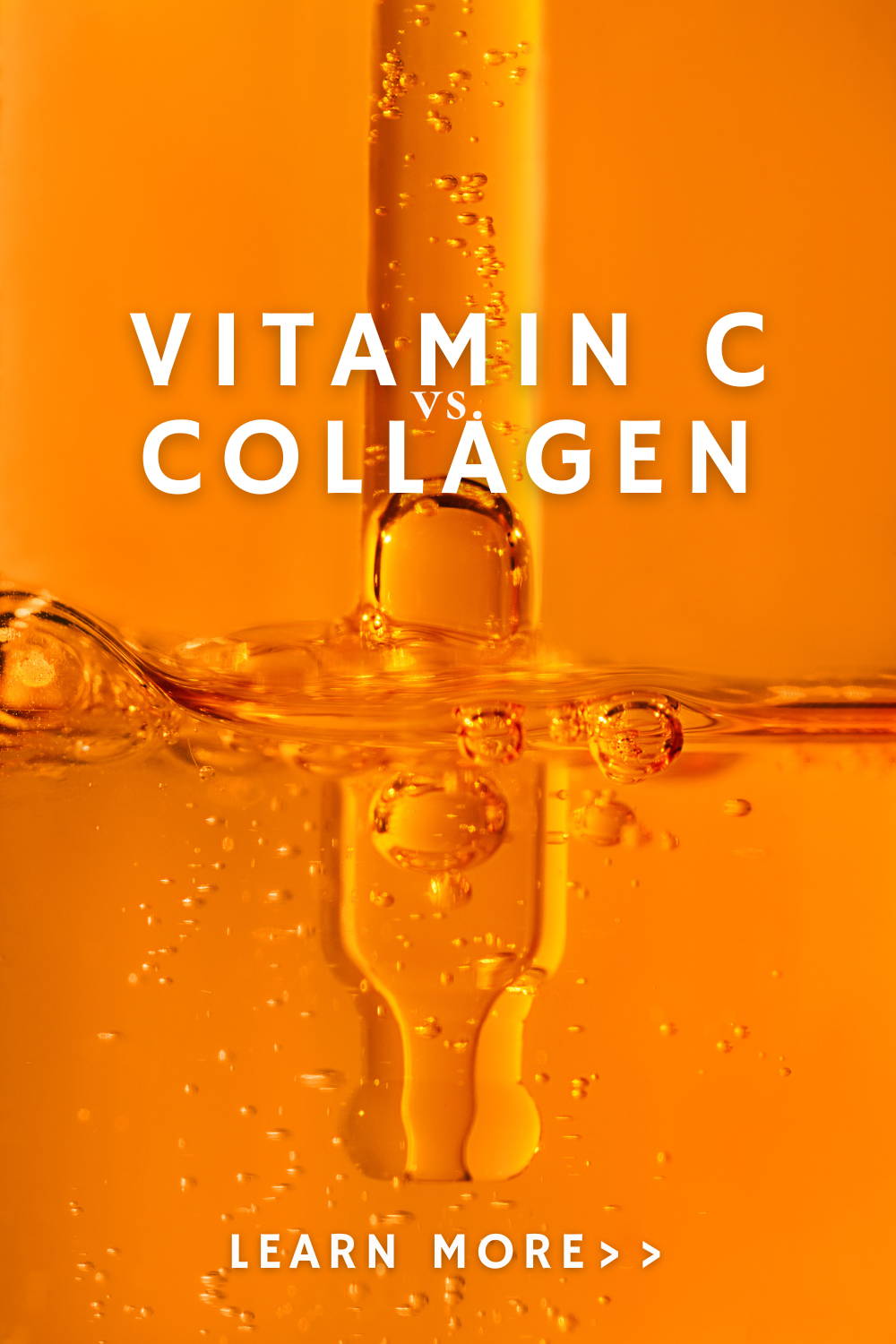Collagen vs. Vitamin C: Which Anti-Aging Product to Use When
When it comes to achieving youthful, glowing skin, two ingredients stand out: collagen and vitamin C. But here’s the secret—it’s not about choosing between them; they actually work better together. Collagen and vitamin C support each other to keep skin firm, smooth, and bright. Let’s dive into why you need both for your anti-aging routine, how to layer them effectively, and the specific benefits they offer for a radiant complexion.
Why Collagen Is Essential for Skin Elasticity and Hydration
Collagen is the structural protein that keeps skin firm, elastic, and resilient. As we age, our natural collagen production declines, leading to signs of aging like wrinkles, sagging, and loss of elasticity. Boosting collagen levels, whether through supplements or specific skincare, helps restore skin’s structure, making it look smoother and more hydrated.
Studies show that participants who took collagen supplements daily for 12 weeks showed improved skin elasticity and a reduction in fine lines. Collagen peptides in supplement form are especially beneficial as they are hydrolyzed for better absorption, helping your skin look plump and hydrated from the inside out.
The Role of Vitamin C in Collagen Production and Skin Brightening
Vitamin C does more than brighten skin—it’s crucial for collagen synthesis. Without enough vitamin C, the body struggles to produce collagen, making it an essential part of any anti-aging skincare routine. Vitamin C stimulates fibroblasts, the cells responsible for creating collagen, helping skin maintain its firmness and resilience. And as a powerful antioxidant, it also protects existing collagen from damage by neutralizing free radicals caused by UV exposure and pollution.
Collagen vs. Vitamin C: Why They’re Better Together
Rather than thinking of collagen and vitamin C as a choice, it’s best to view them as a team. Here’s how these two ingredients complement each other for youthful, radiant skin:
- For Firmness and Elasticity: Collagen supplements help strengthen skin from within, while vitamin C supports this by boosting natural collagen production and stabilizing collagen fibers.
- For Brightening and Even Skin Tone: Vitamin C is known for its ability to reduce dark spots and even out skin tone, which collagen can’t do. By using both, you get the benefits of a brighter complexion and improved skin elasticity.
- For Overall Skin Health: Combining collagen and vitamin C provides a holistic approach to anti-aging. Collagen improves skin texture and hydration, while vitamin C enhances skin’s defense against environmental stressors.
How to Use Collagen and Vitamin C Together
Ready to incorporate both into your routine? Here’s how to use vitamin C and collagen effectively for the best results:
1. Start with a Vitamin C Serum
Apply a vitamin C serum in the morning after cleansing. Look for stabilized forms, such as L-ascorbic acid or tetrahexyldecyl ascorbate, which are highly effective but gentle on the skin. MOOD’s ELEVATE Vitamin C Face Serum is a great choice, formulated to brighten skin, boost collagen production, and protect against free radicals.
2. Add Collagen Supplements to Your Routine
Taking collagen supplements daily helps support your skin’s structure from within. Hydrolyzed collagen peptides are easier for the body to absorb and can improve elasticity and hydration over time. For best results, pair them with your vitamin C serum for a powerful inside-out approach.
3. Finish with SPF Protection
Collagen and vitamin C are both sensitive to UV damage, which accelerates aging and breaks down collagen. A broad-spectrum SPF, like MOOD’s DEFEND SPF 30 Face Serum, shields your skin from UV rays and environmental stressors, preserving the benefits of both collagen and vitamin C.
FAQs: Collagen and Vitamin C
Can I use collagen and vitamin C on sensitive skin?
Yes! For sensitive skin, choose a gentle form of vitamin C, like magnesium ascorbyl phosphate, and start with a low concentration to avoid irritation.
How soon can I expect results?
With consistent use, many people notice brighter, firmer skin in about 4–6 weeks. Collagen supplements often take a bit longer (8–12 weeks) to show visible results as they work from within.
Do collagen supplements and topical collagen work the same?
No, topical collagen does not penetrate deeply enough to affect skin structure, so supplements are a better option for boosting collagen levels.
Why Collagen and Vitamin C Are Essential for Youthful Skin
To maintain youthful, glowing skin, you need both collagen for structure and vitamin C to enhance and protect that structure. Together, they form a powerful anti-aging duo that improves skin elasticity, reduces fine lines, and brightens skin tone.
For optimal results, incorporate a daily collagen supplement and a vitamin C serum into your skincare routine. This well-rounded approach provides both internal and external support, keeping your skin looking radiant, resilient, and youthful.
VITAMIN C VS. KOJIC ACID: WHICH SKIN BRIGHTENING ingredient IS BEST?

